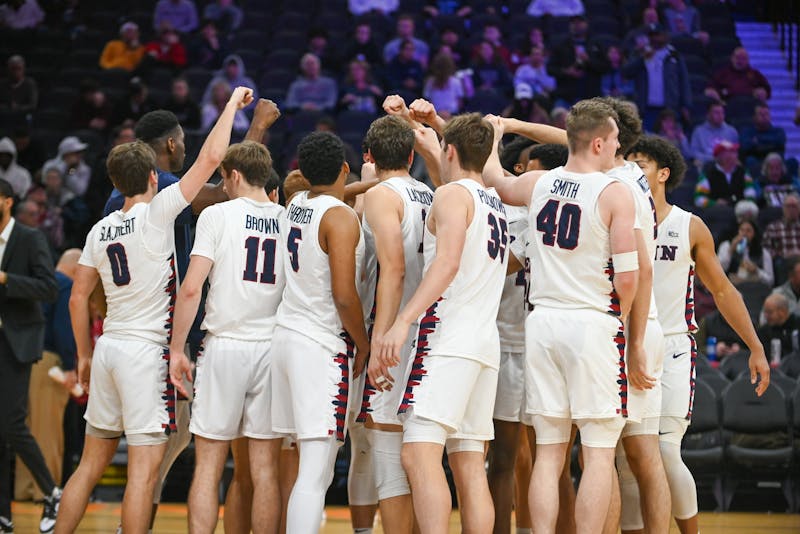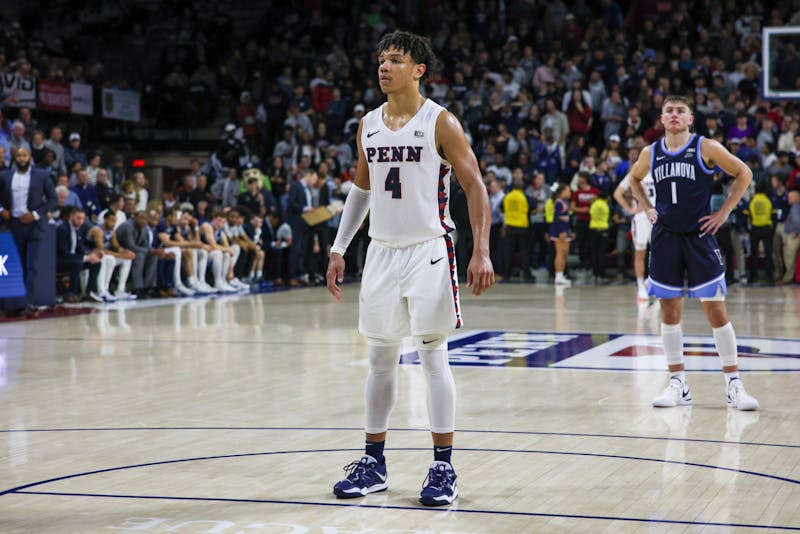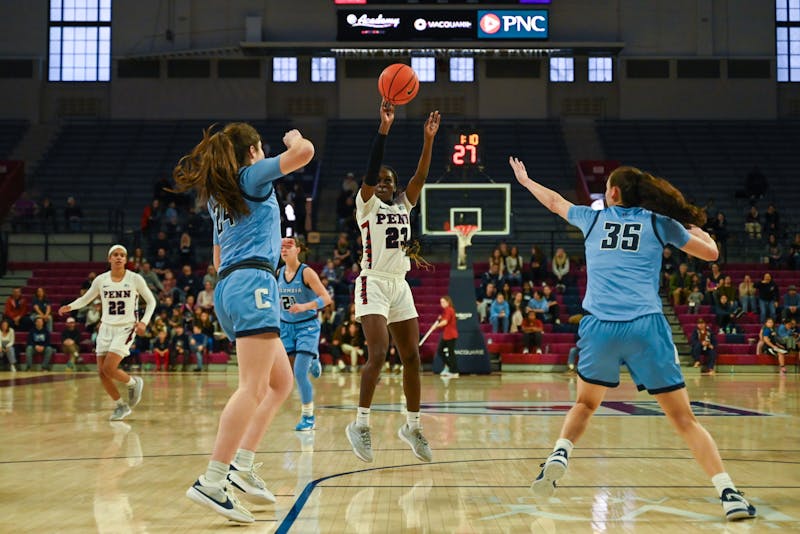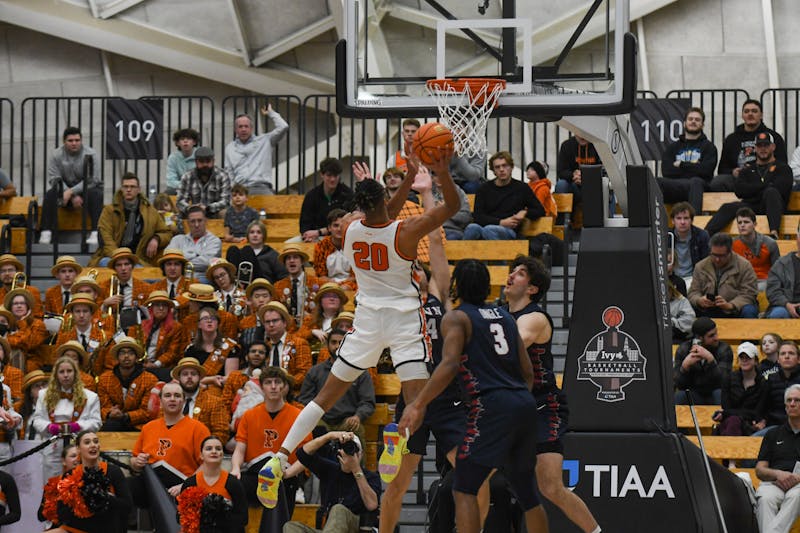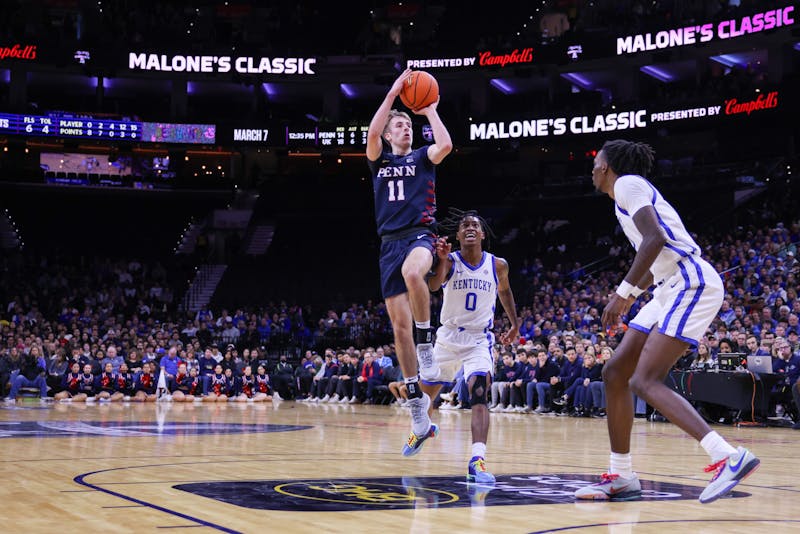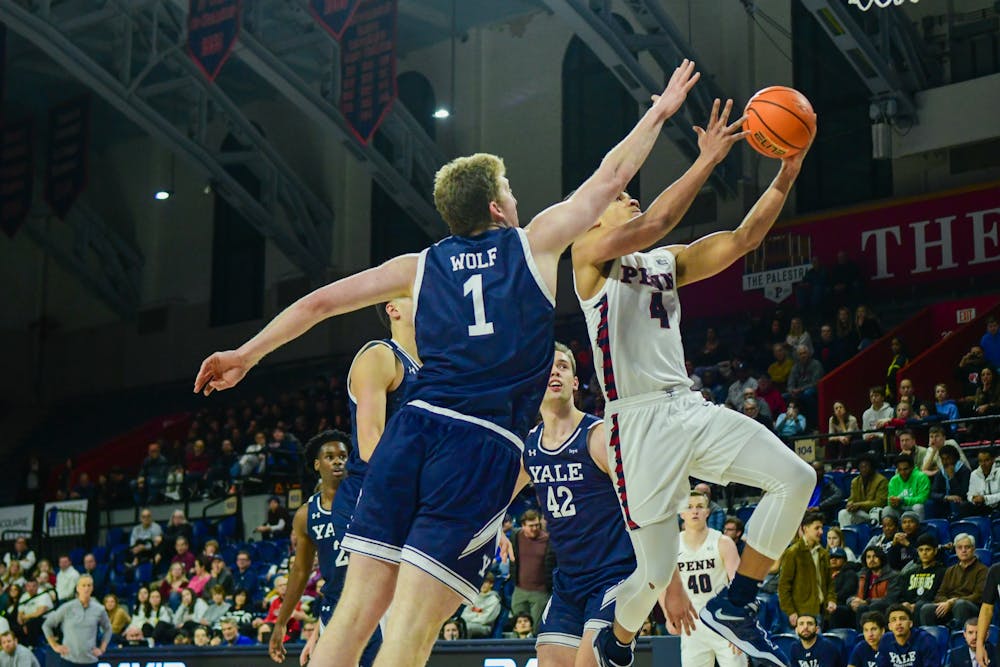
In early November, I sat high atop the Palestra’s fabled bleachers and watched something magical happen. For the first time in my tenure at Penn, men’s basketball defeated Villanova in a thrilling matchup.
Arguably the best player for Penn that game was freshman guard Tyler Perkins, who finished with a team high of 22 points, brought down six rebounds, and made several key free throws down the stretch to seal the Quakers’ victory. Most of all, he looked totally unafraid in what was the biggest moment of his then young college career.
But the next time the Quakers head to Finneran Pavilion to face off against the Wildcats, Perkins won’t be with them. He’ll be there, but on the other sideline — facing his former team. Last week, Perkins announced his transfer to Villanova, leaving the Quakers without their highest scoring freshman of all time.
Perkins isn’t the only key player leaving the Ivy League this offseason. Yale’s Danny Wolf, coming off a First Team All-Ivy selection, will be elsewhere next year. Reigning conference Rookie of the Year Malik Mack will be taking his talents to Georgetown. And last year, Jordan Dingle — coming off of a season where he finished second in Division I in scoring and earned Ivy League Player of the Year — left Penn for St. John’s during the offseason. None of these players were graduate transfers looking to cash in on their final year of eligibility, either. They all had eligibility remaining with their former teams.
The Ivy League prides itself on having a certain appeal to prospective players. A common refrain coaches and administrators tell recruits is the “40-year benefit, not just the four-year benefit” of playing at an Ivy League school. This is what the conference says helps it stay relevant in the modern age of college athletics.
I have no idea whether Perkins — or any of the other transfers — will be receiving scholarships or significant name, image, and likeness deals with their new schools. Whatever they are receiving, though, I applaud them for it. Athletes have a limited window of opportunity to make money off their skills, and they should cash in on that as much as possible, including by starting in college.
But I can’t help but feel slightly melancholic thinking about what it means if the best players in Ivy League men’s basketball will leave every year. The idea that a team will stay together and develop for several years at a time always held an allure for me.
The Ivy League is great — I’m so happy to have gone to Penn, for so much more than just sports. But it isn’t great to think about the fact that my school seems to be in a conference which is little more than a minor league, a feeder system that has its best players poached each offseason.
Again, let me reiterate: I have absolutely no problem with any player who leaves the Ancient Eight for greener pastures elsewhere. But these transfers are degrading the quality of the conference.
The college basketball world at large won’t change its NIL or scholarship approach. So, the Ivy League is at a crossroads. It can stick to its old ways at the risk of having a lesser quality product, or it can adapt. And it should make a decision soon, unless the conference wants to fall even further behind.
The Daily Pennsylvanian is an independent, student-run newspaper. Please consider making a donation to support the coverage that shapes the University. Your generosity ensures a future of strong journalism at Penn.
Donate







